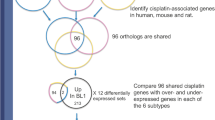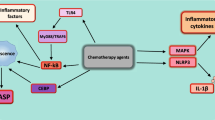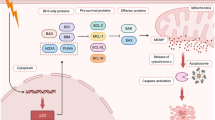Abstract
Apoptosis is a fundamental mechanism of cell death that can be engaged by a range of cellular insults. One of the major modes of action of chemotherapeutic drugs may be via the activation of apoptosis. Understanding how the cell death program is engaged following an insult, and hence why it fails to be engaged in certain settings, offers a novel approach to overcoming the clinical problem of drug resistance. The tumour suppressor gene p53 and its downstream effector genes p21, mdm-2,and gadd45 seem to be important in the cellular response to genotoxic drug induced damage. Considerable evidence has accrued about the effect of mutations of this pathway on drug sensitivity and this is discussed.The expanding Bcl-2 family of proteins also play an important role in the cell death program. Evidence suggests that these proteins may function as integrators of damage signals, and may be the final decision point as to whether a cell lives or dies. These proteins may thus represent a logical target for new approaches to overcoming drug resistance.
Similar content being viewed by others
Author information
Authors and Affiliations
Additional information
Electronic Publication
Rights and permissions
About this article
Cite this article
Makin, G., Hickman, J. Apoptosis and cancer chemotherapy. Cell Tissue Res 301, 143–152 (2000). https://doi.org/10.1007/s004419900160
Received:
Accepted:
Published:
Issue Date:
DOI: https://doi.org/10.1007/s004419900160




